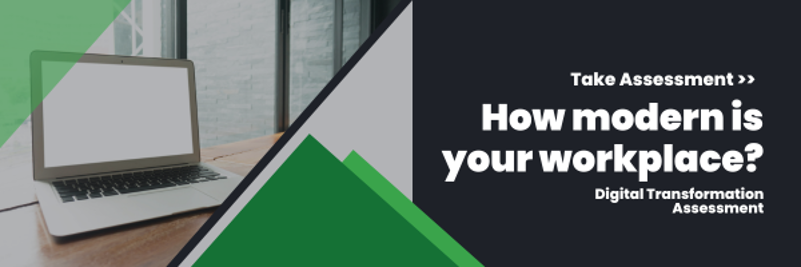Artificial intelligence (AI) has become a transformative force in recent years, reshaping and revolutionizing how businesses operate. Almost every industry implements AI in some capacity to improve day-to-day activities. From voice recognition and chatbots to improved online shopping and streaming service recommendations, AI has made its way into the human world, and no matter how you feel about it, it’s here to stay.
Although AI has many benefits, it raises challenges and ethical considerations. There’s even an open letter calling for a pause in AI deployment. By learning about its pros and cons, your business has a better chance of implementing it correctly with strict guidelines.
Read: Artificial Intelligence Outsmarts IT Disruptions
What Exactly Is Artificial Intelligence?
AI is a technology that performs tasks like humans but without human intervention. It’s programmed to learn and explore surroundings with data analysis. For the most part, this powerful tool helps perform day-to-day tasks and saves time and resources so humans can do more productive tasks or focus on more creative projects.
To accomplish this, AI uses complicated, complex mathematical equations and cognitive technologies. Basically, it simulates human intelligence so machines can do what we usually do. However, unlike humans, AI can’t replicate our creativity or intelligence by itself; it can only complete the task it’s been programmed for.
There are two types of AI you should know about:
- Weak or narrow AI: This type only focuses on one task and has limitations
- Strong or general AI: This type understands and learns tasks as humans can, and it can work beyond limitations
The idea of a super AI that surpasses human intelligence and will function independently (think of “The Matrix”) is still a concept.
Benefits of Artificial Intelligence
Numerous benefits come with AI:
- Increased efficiency and productivity: AI can handle routine and repetitive tasks so your human staff can focus on strategic or creative endeavors.
- 24/7 availability: Unlike humans, AI doesn’t need breaks or vacations. It can essentially work 24/7, allowing it to complete complicated tasks faster.
- Data-driven insights: AI can process and analyze massive amounts of data quickly and accurately. Furthermore, it can extract meaningful insights and patterns to help guide informed decision-making and predictions, such as market trends, customer preferences and market opportunities.
- Error-free data processing: Humans make mistakes – it’s just a fact of life. With AI, human error and inaccuracy are removed. You can achieve better results with fewer mistakes and higher precision.
- Logical through and through: AI is designed to make logical decisions with cognitive computing. This can remove any emotions or biases that would hinder decision-making.
- Personalized experiences: AI can analyze data for tailored experiences and recommendations. This can enhance satisfaction and drive higher conversion rates and loyalty.
- Improved customer satisfaction: AI chatbots and virtual assistants can provide 24/7 customer support, regardless of location or time. They can also address multiple queries and concerns in real-time.
- Mitigate risky situations: If your company deals with coal mining, deep ocean exploration, volcanoes or other dangerous environments, you can utilize AI to mitigate human safety concerns.
- Faster decision-making: With all these benefits, AI can make decisions faster than humans. This gives some companies a competitive advantage.
Risks of Artificial Intelligence
On the flip side, AI has just as many risks as it does benefits:
- Job displacement of human workers: The number one concern with AI is that it can make some jobs obsolete and replace human workers. AI eliminated almost 4,000 jobs in one month alone this year, and more are expected to come. Another report claims that 74% of works have concerns about AI replacing them at work.
- Lack of fairness: AI can perpetuate or amplify biases present in the training data or its algorithms, leading to discriminatory outcomes. In other words, AI is only as objective as the training and programming it received, and if you want new outcomes, you have to alter the algorithms.
- Reliability and accountability: It’s also tough to understand AI, which can lead to a lack of transparency for how and why AI came to its conclusions. If AI makes a mistake, a lack of accountability can occur.
- Ethics: Another great fear of AI is its ability to be used to develop autonomous weapons. AI can also make realistic-looking photos, videos or audio clips that can then be used to spread false information.
- Privacy concerns: Since AI collects and analyzes vast amounts of data, companies must implement robust security measures, such as strict data protection regulations and safe data handling practices, to protect against unauthorized access, data breaches, cyber attacks and data misuse.
- Lack of creativity, emotions and intuition: AI struggles with creative, intuitive and emotional intelligence. Remember, it can’t invent – it can only perform the task it was given.
- High costs: AI development and implementation can be expensive. Maintaining and updating its hardware and software and training staff on how to use it can also add up.
- Increase human laziness: Dependency on AI can lead to reduced critical thinking skills, independence, decision-making skills and intuition.
So, How Do I Safely Implement Artificial Intelligence?
Implementing AI will differ from company to company, depending on the industry and its cybersecurity compliance regulations. However, these basic steps are a great guideline:
- Identify your business objectives and goals: Whether you want to improve efficiency, enhance customer experience or boost sales, you first need to know what the AI would be used for.
- Collect and prepare data: You then need to ensure that you have clean, relevant data for analysis and training.
- Choose the right AI tools: Select the tools that best align with your goals. For example, if you want to improve customer experience, you can implement a virtual assistant.
- Have the right implementation team: Implementing and using AI involves your IT, data and business teams. Leverage their strengths to achieve the optimal results.
- Test AI: Use controlled environments to evaluate how it works for your company. From there, you can address any ethical considerations.
- Audit and update AI: Once you get the hang of AI, you can regularly update and audit it to ensure fairness and correct implementation.
Thriveon and Artificial Intelligence
At Thriveon, we recognize how important AI is to industries. Our CIOs are having conversations around building policies and strategies on implementing AI. For more information, schedule a consultation with our staff today.

